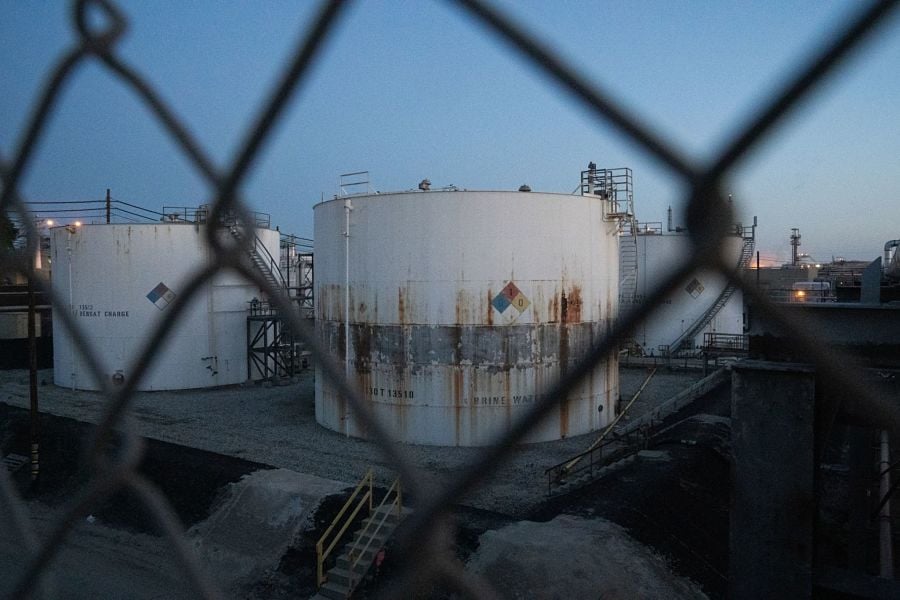

The New York State Common Retirement Fund, the third-largest U.S. public pension plan, said it may divest from the riskiest oil and gas companies by 2025 and pledged to reach net-zero greenhouse gas emissions across its investments by 2040, one of the biggest climate moves by a major public fund.
The $226.4 billion plan also said it will finish a review of all its fossil-fuel holdings and related businesses within four years. The focus will be on how businesses are preparing for the transition to a low-carbon economy.
“Achieving net-zero carbon emissions by 2040 will put the fund in a strong position for the future mapped out in the Paris Agreement,” Comptroller Thomas P. DiNapoli said in a statement on Wednesday.
The New York fund initiated a climate action plan last year to address risks across its investment portfolio, and as a result, it said in July it would sell shares in 22 thermal coal mining companies. DiNapoli, the sole trustee of the plan, has faced pressure from environmental advocates, scientists, and some lawmakers to fully divest high-carbon emitters. The pension fund was among the 40 largest shareholders of Exxon Mobil Corp. at the end of September, owning 8.5 million shares.
Other large pension investors have taken action to reduce their carbon footprints, including the California Public Employees’ Retirement System and Australia’s Retail Employees Superannuation Trust, which have committed to transition their investments to net-zero emissions by 2050.
New York’s announcement is the “biggest leap forward worldwide on climate finance action in 2020,” the #DivestNY coalition, a group of environmental advocates, said in a statement. It’s “the most comprehensive program” to divest from fossil fuels, decarbonize across a massive portfolio, and put major financial pressure on publicly traded companies, the group said.
The New York retirement fund said it will boost its engagement with companies, encouraging them to move to net-zero emissions more quickly by voting against directors who fail to act on climate change.
The fund also said it’s finishing an evaluation of nine oil-sands companies, and it plans to develop minimum standards for investments in shale oil and gas. It will do the same for the oil majors, as well as related equipment, transportation and storage companies.
“After completing initial reviews, the fund will continue to reassess whether the remaining companies are meeting minimum standards and are on viable low-carbon transition pathways,” DiNapoli said, adding that the plan will be hiring more staff to work on the efforts.
DiNapoli has in the past resisted calls to stay clear of fossil-fuel companies, saying the fund prefers to engage with businesses to encourage them to do more about global warming.
“Divestment is a last resort, but it is an investment tool we can apply to companies that consistently put our investment’s long-term value at risk,” DiNapoli said in Wednesday’s statement.
The announcement comes as the state moves to implement its climate action law, the most aggressive in the nation, signed by Gov. Andrew Cuomo in July 2019. The law codifies the state’s goal of getting all its electricity from emission-free sources by 2040 and an 85% reduction in economy-wide emissions by 2050 from 1990 levels.

Rajesh Markan earlier this year pleaded guilty to one count of criminal fraud related to his sale of fake investments to 10 clients totaling $2.9 million.

From building trust to steering through emotions and responding to client challenges, new advisors need human skills to shape the future of the advice industry.

"The outcome is correct, but it's disappointing that FINRA had ample opportunity to investigate the merits of clients' allegations in these claims, including the testimony in the three investor arbitrations with hearings," Jeff Erez, a plaintiff's attorney representing a large portion of the Stifel clients, said.

Chair also praised the passage of stablecoin legislation this week.

Maridea Wealth Management's deal in Chicago, Illinois is its first after securing a strategic investment in April.
Orion's Tom Wilson on delivering coordinated, high-touch service in a world where returns alone no longer set you apart.
Barely a decade old, registered index-linked annuities have quickly surged in popularity, thanks to their unique blend of protection and growth potential—an appealing option for investors looking to chart a steadier course through today's choppy market waters, says Myles Lambert, Brighthouse Financial.
